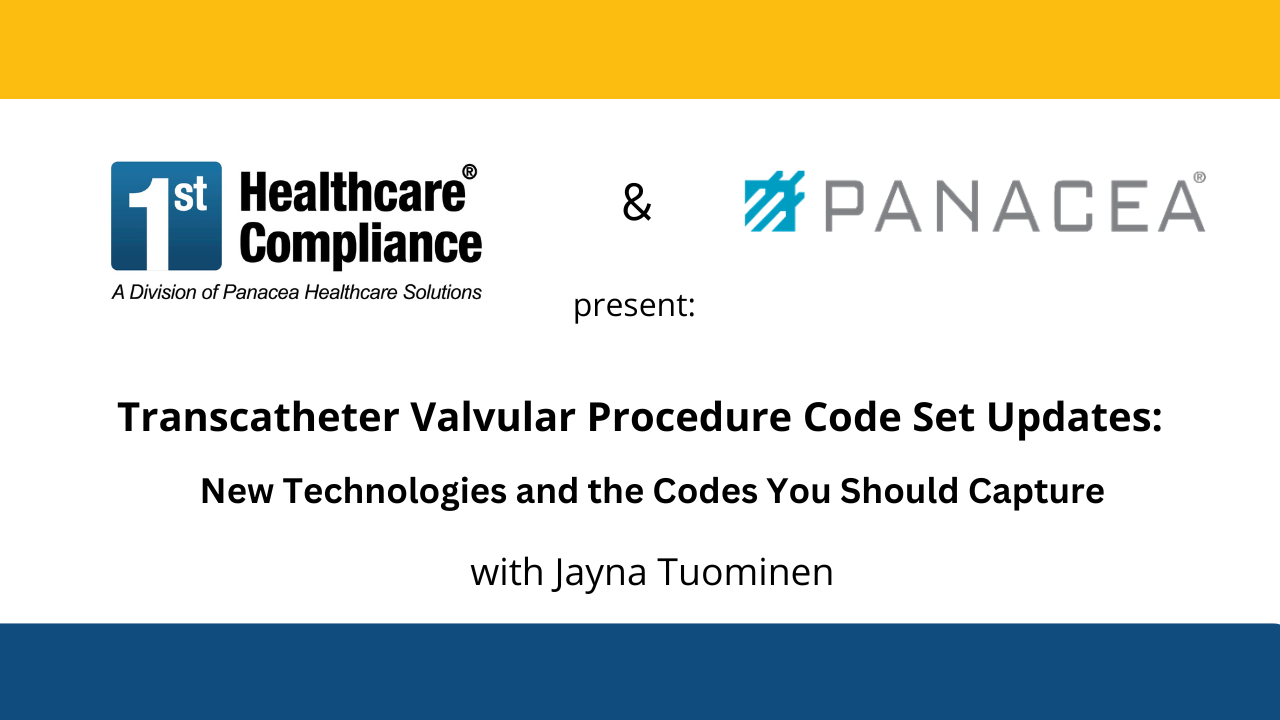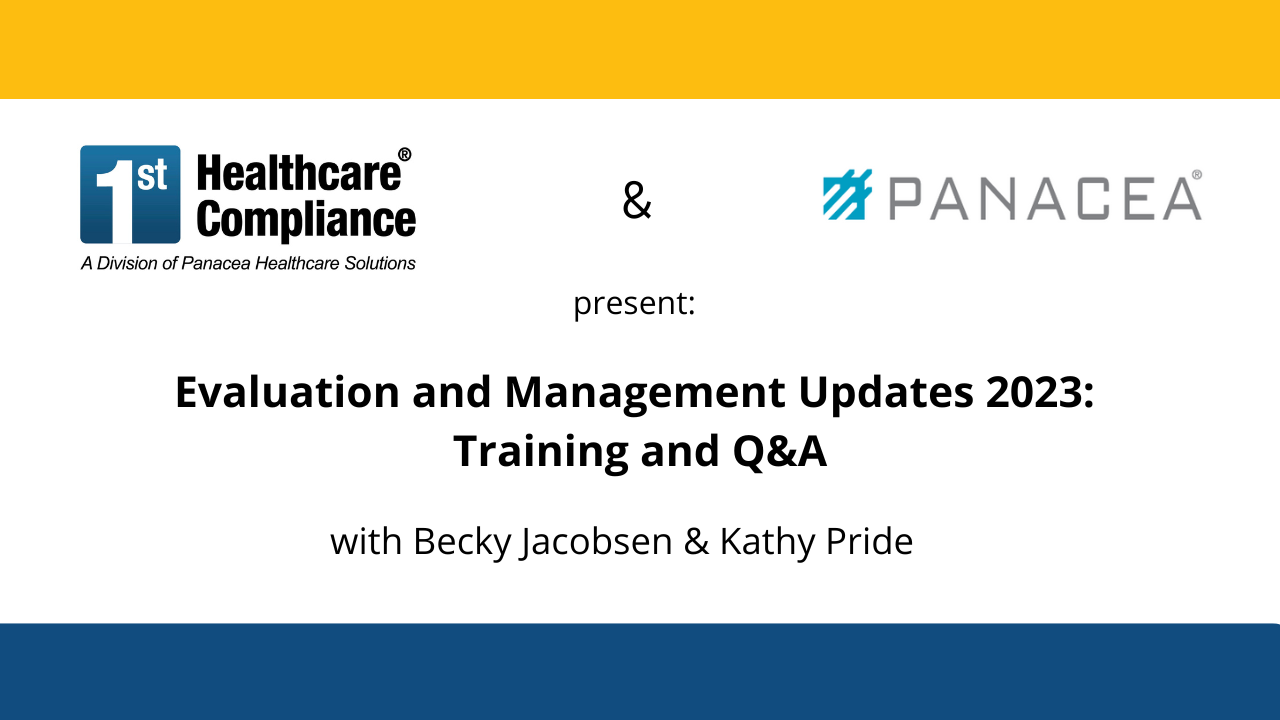
Transcatheter Valvular Procedure Code Set Updates: New Technologies and the Codes You Should Capture
The transcatheter valvular procedure code set in CPT has significantly expanded since the transcatheter aortic valve replacement (TAVR) codes were created in 2013. To keep up with the development of these novel treatment options in the subspecialty of interventional cardiology, several additions have been made to CPT to capture new procedures across all four cardiac valves in several areas of the code book. Additionally, many patients are enrolled in clinical trials as this area of medicine rapidly expands, creating the need for a nuanced understanding of coding, billing, and claim requirements beyond just the assignment of the correct CPT code.
Join Panacea Senior Healthcare Consultant Jayna Tuominen for this 60-minute webinar, where she will review the current state code set for transcatheter valvular heart interventions across all four cardiac valves and discuss how to successfully navigate clinical trial coding, billing, and claim submission for these procedures. This presentation will equip physicians, charge entry personnel, coding professionals, practice administrators, and revenue cycle staff with the information needed to perform accurate and compliant coding and claim submission.

Evaluation and Management Updates 2023: Training and Q&A
Join Panacea Healthcare Solutions’ Director of Coding & Documentation Services, Becky Jacobsen, CCS-P, CPC, CPEDC, CBCS, MBS, CEMC, BSN, and Executive Vice President of Coding & Documentation, Kathy Pride, RHIT, CPC, CCS-P, for a complimentary 90-minute training where they will review the 2023 E&M documentation guidelines and requirements and provide examples on how to improve your internal documentation processes to ensure appropriate reimbursement and avoid compliance issues. A live Q&A at the end of the training will provide the opportunity to ask questions. Those who register will receive the recording along with a post-training FAQ sheet to reference as you put these new guidelines into practice.
